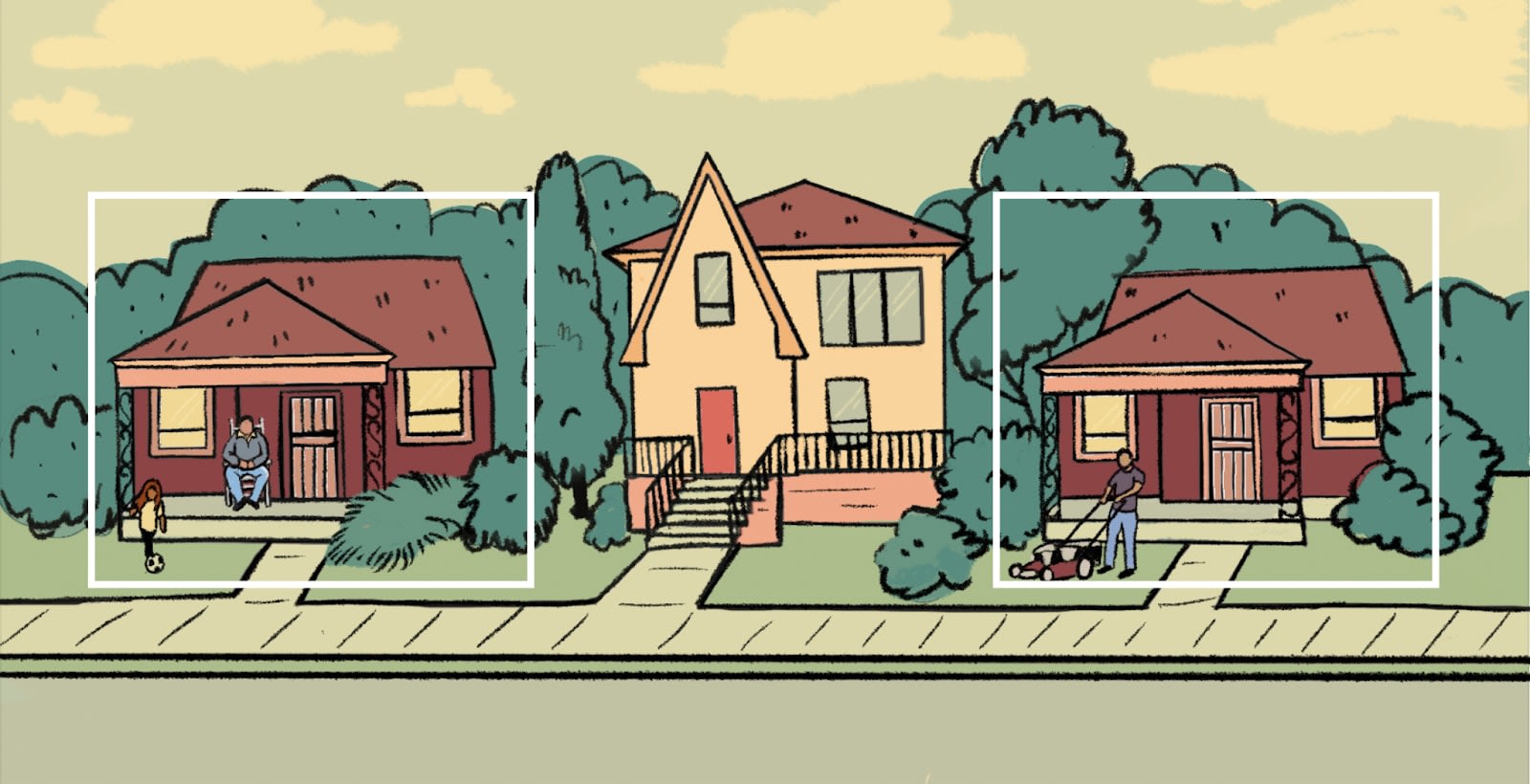Of all the fun things about owning property, paying your property tax bill has to be at the very bottom of the list. And if you get sticker shock every time the assessment arrives in the mail, you could be right — your property tax bill could be way higher than it needs to be.

Illustration credit: Betsy Cooper
The Crisis of Inconsistent Assessments in Detroit
First, Property Taxes 101 — real estate is taxed based on its value. The property tax rates are based on the city millage rate. The city assessor estimates the value of your home. That value estimate, multiplied by the millage rate, equals your property tax bill.There’s nothing you can do about that millage rate except vote in city elections for candidates that favor lower property taxes. However, you can protest the city assessor’s appraisal of your home.
Detroit property has swung so wildly in value over the past decade that we have been left with an epidemic of inconsistent assessments. Stories abound of nearly identical houses on the same street, one of them appraised by the city at nearly twice the value of its neighbor.
All in, from 2010 to 2016 Detroit property owners have been subjected to an estimated $600 million in over-taxation.
How to Appeal Your Property Taxes and Get Them Lowered
If you think your property tax bill is based on an inflated assessment of your property’s value, you can appeal the bill. The assessor accepts protests of the property tax bill during a review period that lasts for most of the month of February.What makes an appeal successful? Substantial evidence that your property is worth less than the city assessment at the top of your tax bill.
The Easy Way to Find Out if Your Property is Overassessed
Property data and location intelligence firm Regrid has created a fantastic web app that gives you a simple indicator of whether or not your property may be overassessed — in other words, whether or not you are likely to succeed in an appeal for lower property taxes.Regrid’s Detroit Assessment Gauge is a mapping tool that overlays two major sets of data — property tax assessments, and HUD Census Tract assessments. In other words, it compares what the county thinks your specific property is worth per square foot, versus what the Federal Bureau of Housing and Urban Development thinks the property is worth in your area, per square foot.
If there is a disparity between these two numbers, the Detroit Assessment Gauge identifies this as a potentially inconsistent assessment.
It overlays the map with simple color coding to help you identify, at a glance, if the tool thinks your property is inconsistently assessed. The darker red the parcel is colored, the more likely Regrid thinks your property is overassessed — in which case, appealing your assessment may result in a lower tax bill.
The darker green the parcel is colored, the more likely Regrid thinks your property is under-assessed — in which case, appealing your assessment may result in a higher tax bill (beware).
Example of Assessment Gauge Score in the Detroit Assessment Gauge:
Clicking on a home, or searching the address in the tool’s search field, will call up not only the color-coded property on the map but a wealth of data about the property and its assessment in a column to the right of the map.Regrind makes no guarantees that your appeal will be successful, but it does put within easy reach the documentation you need to at least make the appeal. At the top of that right-hand data column is a button marked “Print Home Data,” which generates a PDF report of all the data Regrid has collected so you can use that data to make your case.
Right now, the tool is loaded with 2022 data. When 2023 assessments are released, Regrid will update the map — in time for you to meet the February deadline for a 2023 appeal.
Don’t pay more property taxes than you are required to pay. If you need help using the Detroit Assessment Gauge by Regrid, or if you just need help planning your appeal, reach out to us today.